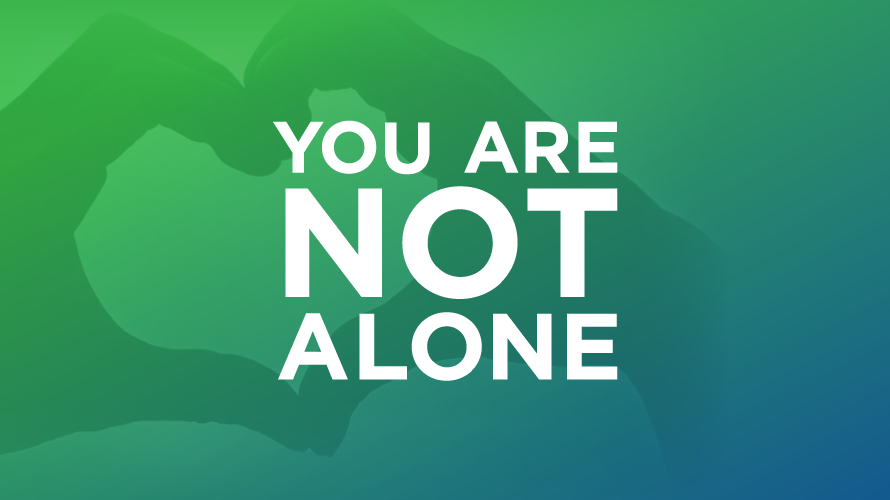
Photo courtesy of the National Alliance on Mental Illness.
Mental health is just as important as physical health. The two are interconnected — mental illness can worsen physical health, while physical illness, injury or trauma can result in mental illness and trauma. Sometimes, because it’s “invisible,” we have trouble putting our mental health first. That’s why May is National Mental Health Month, to serve as a reminder to focus on our mental well-being, break the stigma of mental illness, and let the millions of Americans facing mental illness know that they are not alone.
The past year has taken an especially heavy toll on us all. Below are our favorite tips to help cope through these challenging times:
Eating Habits
Make mood superfoods a regular part of your diet: fruits and veggies, fermented foods, cold-water fatty fish, vitamin D, and iron-rich foods like liver.
Stay hydrated: Drinking the right amount of water helps improve brain function, energy levels and mood.
Try supplements that can help combat stress: ashwagandha, kava, l-theonine, magnesium and more.
Mindfulness
When stress is high and you feel your thoughts spiraling, try one of these strategies:
Go to a quiet place and observe:
- 5 things you can see
- 4 things you can feel
- 3 things you can hear
- 2 things you can smell
- 1 thing you can taste
Help stop rumination by creating a worry list. Write out all the worries that are weighing you down. The next time the worry thought pops up, you can tell it, “It’s okay; I’ve already taken care of you by adding you to the list.”
Begin or end each day with purposeful gratitude. From the general (“I’m grateful for my family”) to the specific (“I’m grateful for the delicious lunch I had today”), appreciating what you have can be a powerful way to ease negative thoughts.
Validation
Show yourself compassion. It’s easy to invalidate our emotions by thinking “I shouldn’t be this upset,” “What is wrong with me?” or “Why can’t I handle this like a ‘normal’ person?” This type of thinking makes us feel worse. Validating thoughts, on the other hand, can help soothe us and lessen the intensity of the emotion we’re feeling. Practice telling yourself:
“It’s understandable to feel this way.” / “Anyone else in this situation would feel this way.”
“My emotion/reaction makes sense based on my past experiences with ____.”
“My emotions are valid.”
Activities
Create a daily care ritual: Do a relaxing activity such as reading, painting or taking a bubble bath at the same time each day.
Get creative: Draw, paint, sculpt, build or bake.
Find humor: Laughter truly is the best medicine. Watch a comedy special, a silly YouTube video, or a lighthearted movie or TV show.
Put things on the calendar to look forward to, however big or small.
Move: Whether it’s stretching at your desk, walking around your home, or going on a hike outside, exercise releases endorphins.
Get outside: If the weather makes that challenging, bring the outside indoors with nature scenery, a sun lamp or houseplants.
Join community events: Ramsey County and NAMI Minnesota are hosting virtual events throughout the month.

